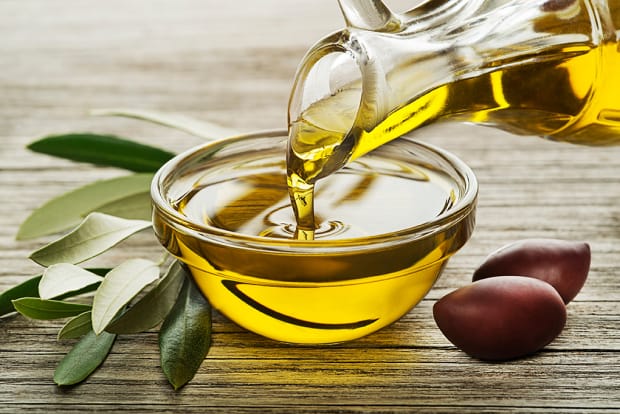Here are some representative sources of recommended fats in the diet. This list isn’t complete, but it will give you a good idea of where to start and what to avoid.
Fat has gotten a bad rap. But, we encourage healthy consumption of “good” fats as part of the clean eating lifestyle. This list of clean cooking oils isn’t complete, but can serve as a great resource for those who are embarking on a clean eating diet plan.
Good Cooking Oils:
Olive Oil
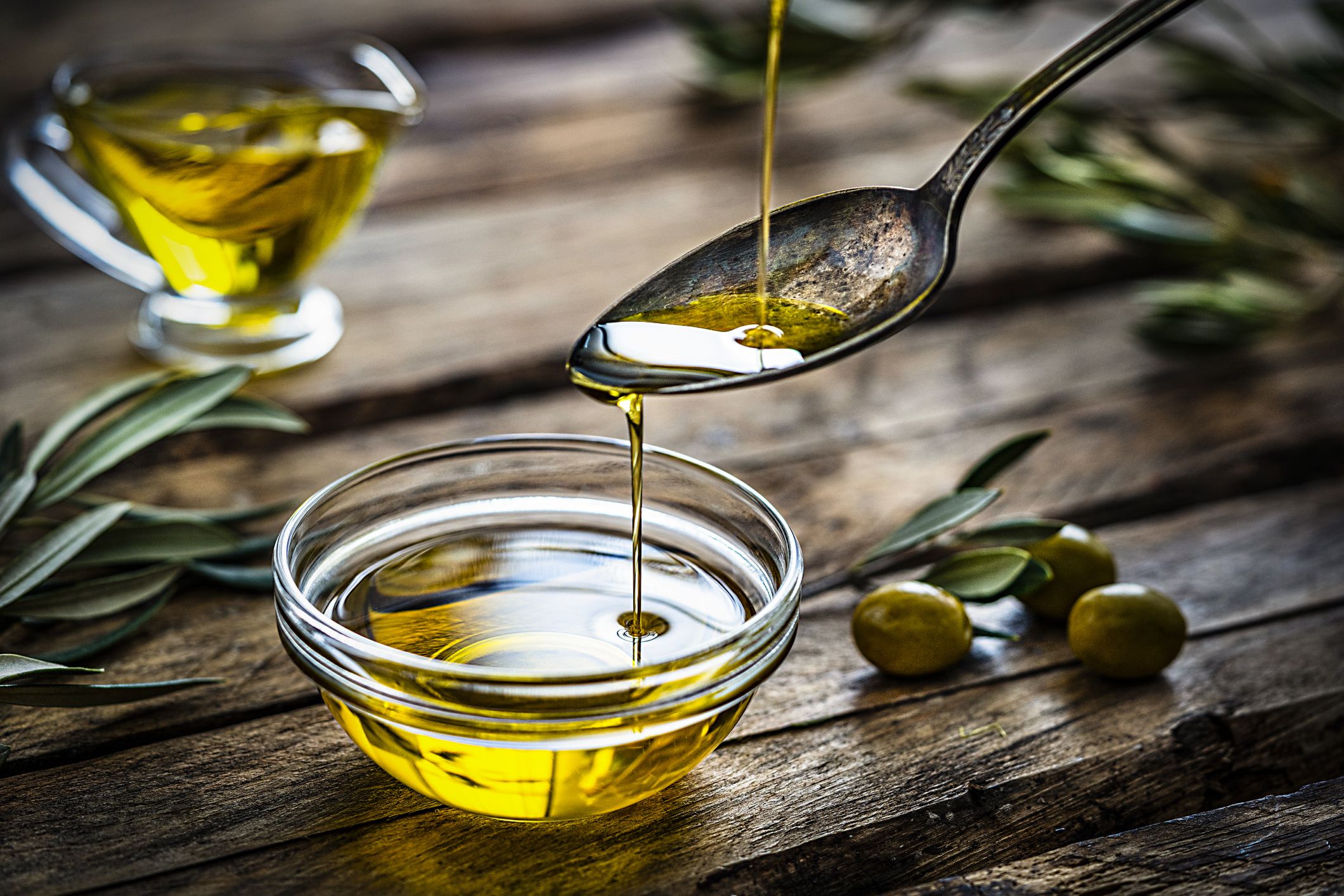
Olive oil is one of the main sources of fat in the much-beloved Mediterranean diet. It’s a monounsaturated fat with a deserved reputation for being extremely heart-healthy. And copious research shows that greater adherence to the traditional Mediterranean diet (including plenty of monounsaturated fat) is associated with a significant reduction in mortality. But all olive oil is not created equal. Unrefined extra-virgin olive oil is best. Because it’s pressed at very low levels of heat, the precious health-giving polyphenols are preserved. So don’t ruin it by heating it at high temperatures!
Almond Oil
A good oil with a high level of monounsaturated fat and a high smoke point (430°F).
Peanut Oil
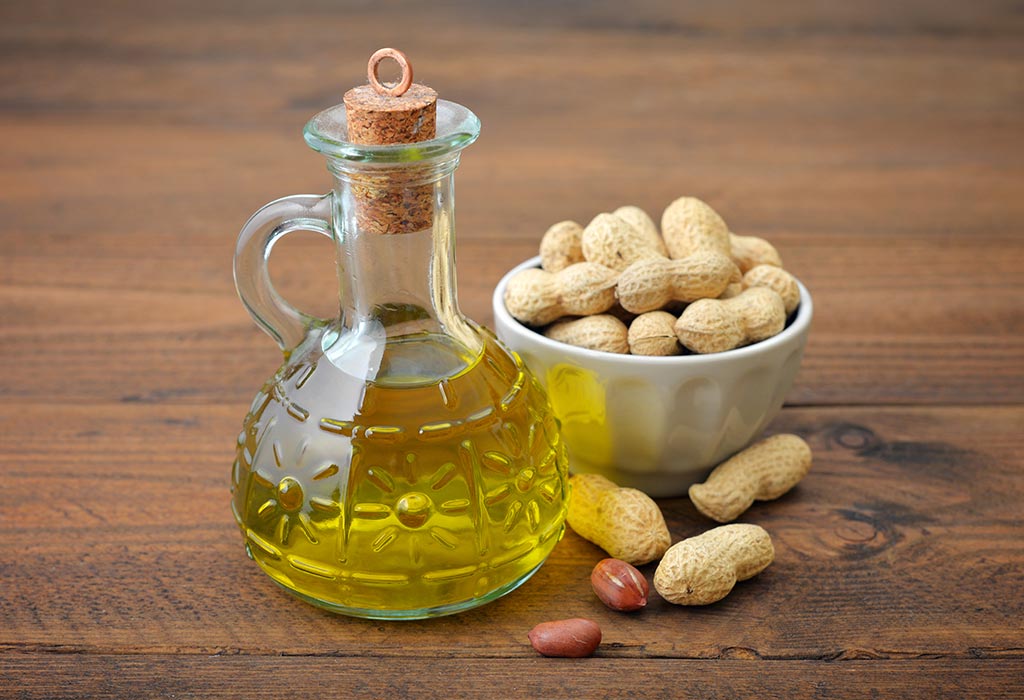
This is another oil high in monounsaturated fat, but because of its omega-6 content, it’s best to use unrefined peanut oil in moderation.
Sesame Oil
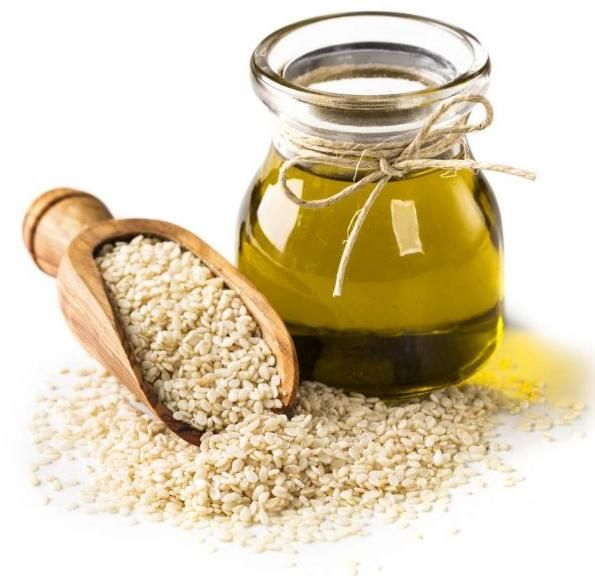
Used extensively in Asia, sesame oil contains some monounsaturated fats. Some of its benefits come from its unique antioxidants, which aren’t destroyed by heat. It also contains phosphatidylcholine, an important nutrient for the brain. I’d limit its use, however, because it does have a high amount of omega-6 fats.
Coconut Oil
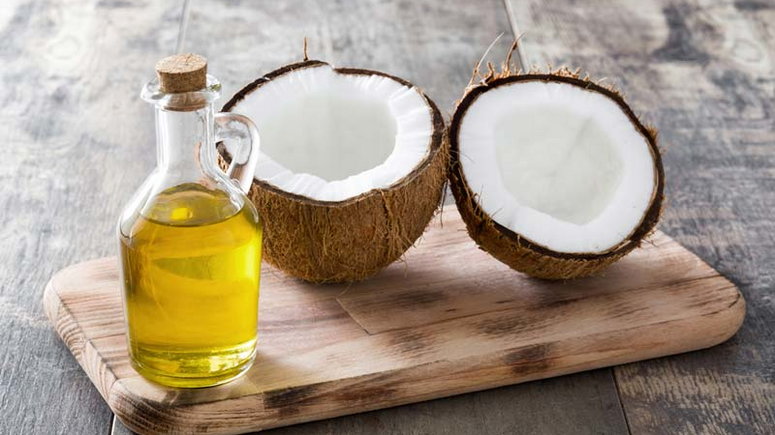
Coconut oil is a superfood. Most of the saturated fat in coconut oil is the type known as medium chain triglycerides, which the body prefers to use for energy rather than store as body fat. It contains a couple of powerful antimicrobal fatty acids — lauric acid and caprylic acid — and produces ketones, a wonderful source of energy for the brain. This is a good example of a fat that was wrongly demonized because it’s saturated. It also holds up to high heat very well and imparts a nice, nutty taste to foods. I often mix it with butter to lighten up the taste a bit.
Butter
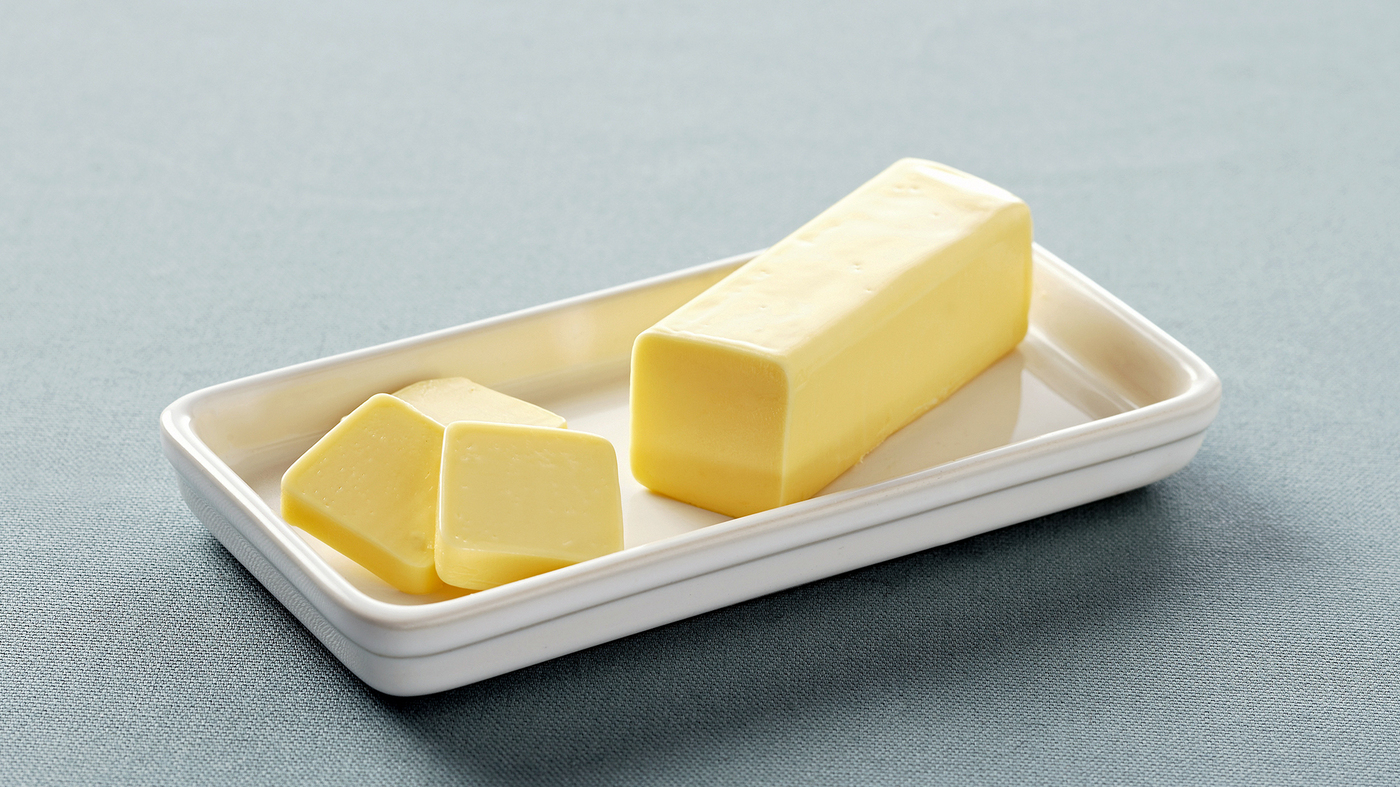
Butter from grass-fed cows is a wonderful fat. You can’t beat the taste, it stands up to heat and new research indicates that full-fat dairy such as butter has significant health properties and may even help combat obesity. Its kissing cousin, ghee, is essentially clarified butter (i.e., with the milk solids removed) and is used throughout India and in Ayurvedic medicine.
Palm Oil
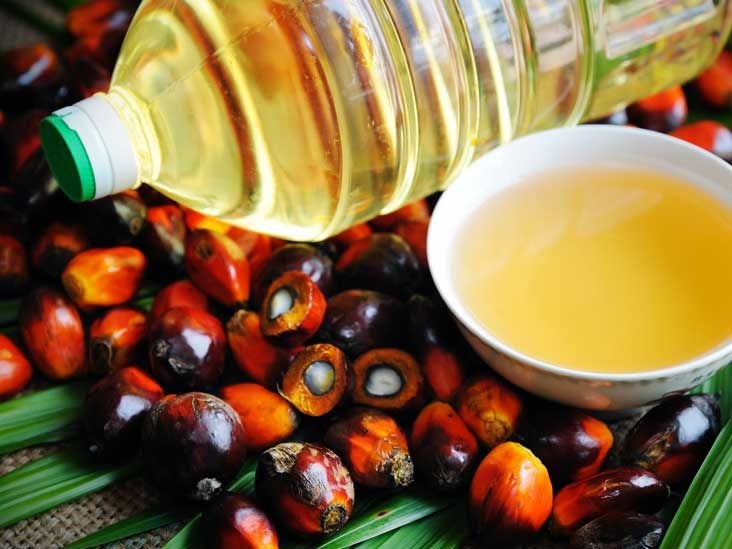
Palm oil (not palm kernel oil) is another plant-based saturated fat that’s been unfairly demonized. It’s high in a particular type of vitamin E called tocotrienols, which have been shown to have a protective effect on the brain. I strongly recommend Malaysian palm oil – due to the Malaysian government’s pro-environmental policies, this oil is produced using sustainable practices. I use this oil all the time.
Bad Cooking Oils:
Canola Oil
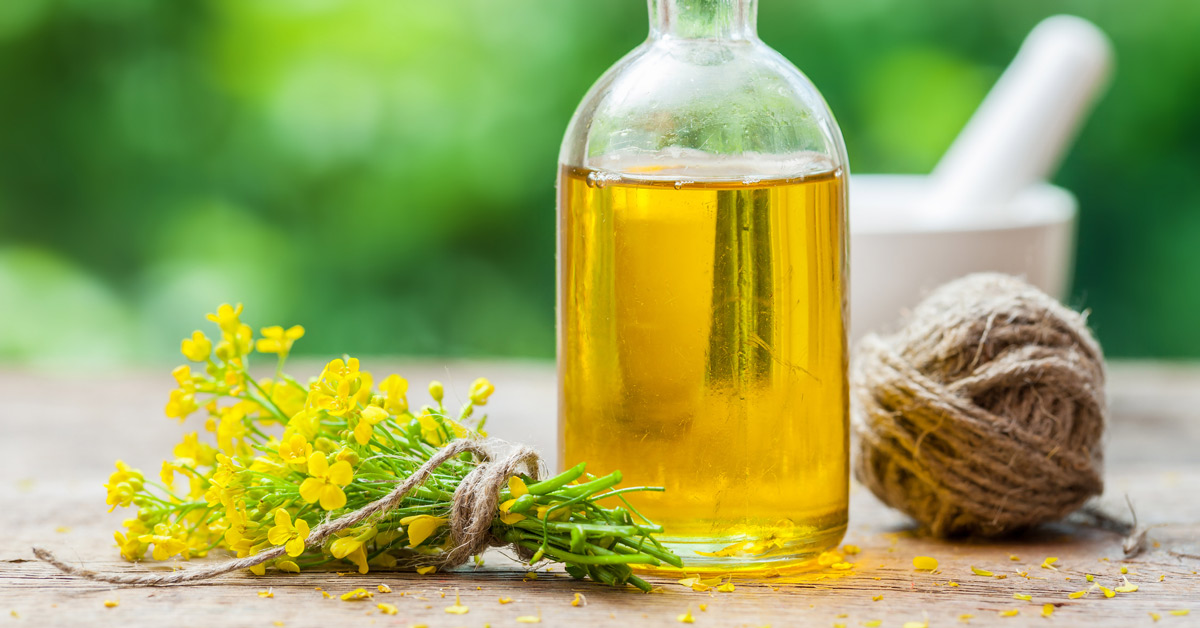
All canola oil (except organic) is GMO, and is highly processed, to boot. Despite its (undeserved) reputation as a health food, I would not have this oil in my kitchen.
Soybean Oil
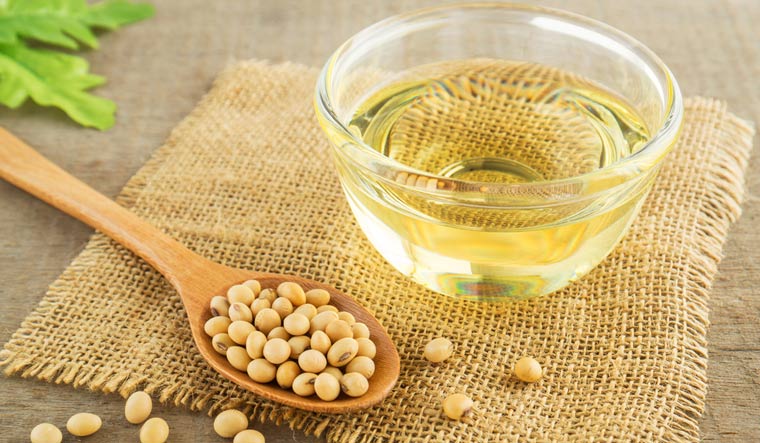
This oil is almost always refined, and — unless it’s labeled organic — is GMO. I’d recommend avoiding soybean oil.
